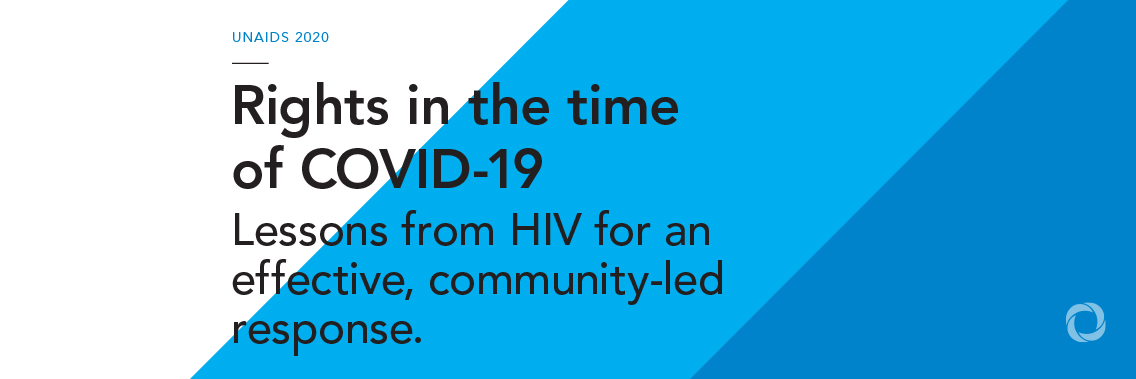UNAIDS is calling on countries to adopt a human rights-based approach in responding to the global outbreak of COVID-19 that puts communities at the centre and respects the rights and dignity of all.
To help guide governments, communities and other stakeholders in planning and implementing measures to contain the pandemic, UNAIDS has produced a new guidance document that draws on key lessons from the response to the HIV epidemic: Rights in the time of COVID-19: lessons from HIV for an effective, community-led response.
The new guidance from UNAIDS is grounded in international human rights law and obligations and makes it clear that responding to an epidemic is not a question of balancing public health and human rights but rather that a successful and effective response requires us to adhere to human rights principles. The guidance has been developed by a group of international experts from communities, the public health arena, academia and the United Nations.
“Successful responses to global epidemics are always grounded in a respect for human rights and community leadership,” said Winnie Byanyima, UNAIDS Executive Director. “Countries that have made the biggest inroads in reducing the impact of HIV have done so by adopting approaches that empower communities to screen, test and seek treatment if necessary and to protect themselves and others from acquiring the virus.”
The guidance presents key lessons from the AIDS response that are crucial for an effective human rights-based approach to public health emergencies. They range from tackling stigma and discrimination faced by affected individuals and communities to prioritizing measures for reaching the most vulnerable, removing human rights barriers, establishing trust between communities and public health authorities and protecting critical frontline medical staff.
As the document recognizes, epidemics tend to expose and exacerbate existing inequalities in society, with their impact often felt most among marginalized and vulnerable groups of people. Financial and other barriers that prevent people from seeking medical help and advice when they need to must be removed, both for their own good and for improved broader public health outcomes.
The guidance also warns against blanket compulsory travel restrictions and criminal sanctions against people affected by epidemics such as COVID-19. Such measures tend to have a disproportionate effect on the most vulnerable and create more barriers to health. Restrictions that are imposed must respect human rights and be necessary, proportionate, evidence-informed and of limited duration. Empowering people to protect themselves and others through voluntary measures can have a greater effect.
Read and download the UNAIDS guidance: Rights in the time of COVID-19: lessons from HIV for an effective, community-led response.
Original source: UNAIDS
Published on 20 March 2020

